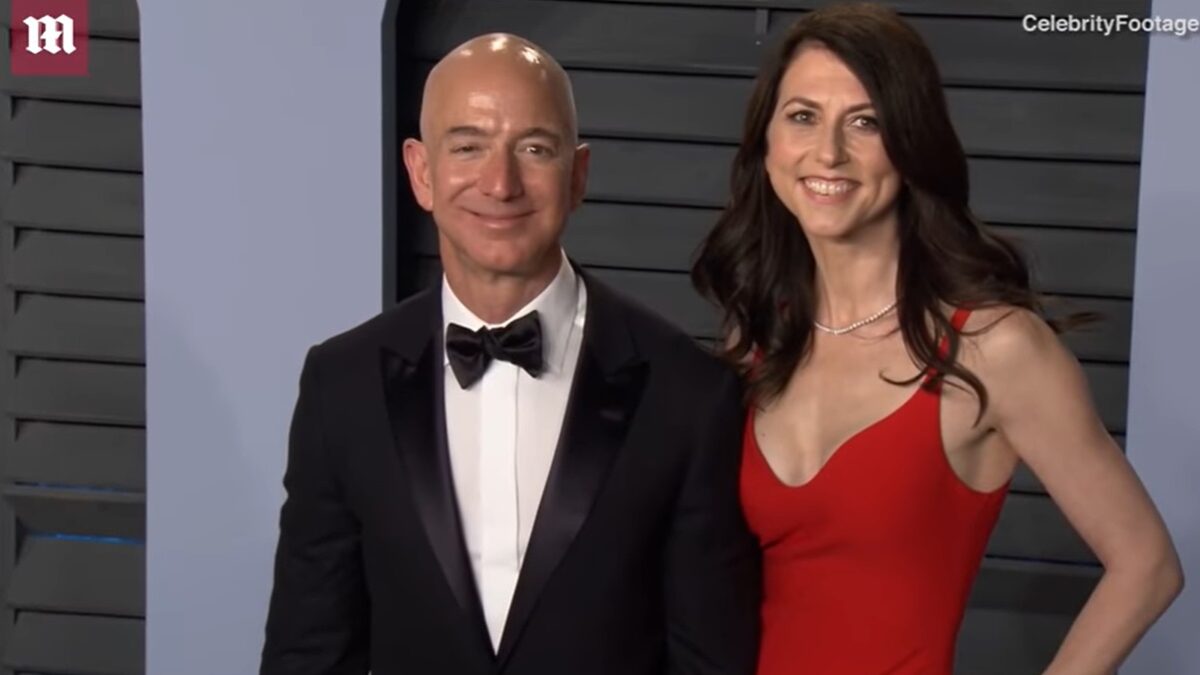
Last weekend the third annual Women’s March was held in various cities around the country. The press did its usual thing, covering the anti-Trump demonstrations on Saturday while pretending the larger March for Life hadn’t taken place the day before.
This year the media’s coverage of the Women’s March was not as widespread, nor was it nearly as fawning or enthusiastic. That’s because the group is confronting serious allegations of anti-Semitism. As a result, many organizations have pulled their support from the march, including the National Organization of Women, NAACP, Greenpeace, Emily’s List, and the Southern Poverty Law Center.
In the face of this exodus, Scotch brand Johnnie Walker made a curious decision to remain a sponsor of the event. This illustrates the risks a corporate entity faces when choosing to wade into the socio-political landscape in search of marketing opportunities.
Johnnie Walker has been an ardent backer of leftist feminism in recent marketing efforts. Unlike other groups that were less entrenched— and as a result had the dexterity to extricate themselves from the toxic affiliation—the Scotch brand had simply invested too much in the event. This should serve as a lesson for companies considering social lectures in their marketing.
The Trap Businesses Set for Themselves
In recent years, a number of businesses have thought it wise to enter the minefield of politics, only to see adverse results in the marketplace. ESPN took an intentional on-air activism approach, and the result was an erosion of viewership. Dick’s Sporting Goods took an anti-gun stance, then saw regular quarterly drops as customer traffic has diminished. The National Football League supported players in their protest of the national anthem, and for the first time in decades the league saw a drop in both attendance and ratings.
Additionally, while the press energetically reported Target’s stance on the controversial transgender bathroom issue, they were less energetic in detailing how the retail chain suffered economically in the wake of that decision. Recently Gillette chose to admonish its male customer base. The now-notorious spot lecturing men on the toxicity of masculinity was not an accident. The company elected to turn over its ad campaign to a feminist director, and an agency known for pro-women spots in the past. Gillette’s scorn for its customers led to a backlash. On YouTube, for instance, the commercial has more than 1 million “Dislikes,” doubling those in approval.
The Johnnie Walker brand is in no less perilous a position. For a number of years, the Scotch label has been veering towards a more pronounced political position. This is a direct result of the decision to change its advertising partnership, and unpredictable controversies any company tries to avoid are creeping up on the brand.
After weeks of the anti-Semitism controversy, the Scotch label remained a vigorous supporter of the Women’s March. Just days ahead of the event, the company posted this tweet, promoting a series of posters it had commissioned.
Here’s to every voice. Here’s to every step. We partnered with some incredible artists to create powerful poster designs for the Women’s March. To print your own, go to https://t.co/FByJjtGAPT. #walkwithjane #womenswave pic.twitter.com/zqVWA4MS9S
— Johnnie Walker (@JohnnieWalkerUS) January 17, 2019
The one touting “Resister” seems to carry a pointed message from one side of the political spectrum. This is not a surprise, as it follows a number of recent company decisions showing a corporate stance trending towards liberal bias.
Last March, Johnnie Walker began marketing “Jane Walker,” a newly branded version of its 12-year-old Black Label Scotch. On a web page dedicated to women’s issues, several activist groups are featured (including the Women’s March), as is a bottle with the brand’s famed logo reimagined as a woman.
More than a cynical or opportunistic effort to capitalize on a new movement, the Jane Walker label is in fact a repurposing of a prior ad campaign attempt initially dashed by political events.
The Emergence Of Johnnie Woke-er
In late 2014, Johnnie Walker severed ties with the ad agency that had promoted the Scotch for 15 years. It partnered with Anomaly Agency, and as the presidential election waged on, the brand’s advertising seemed to get pretty political. The company launched a campaign titled “Walk On America,” and the bent of the messaging was not too difficult to interpret
One of the early commercial spots was called “This Land,” and featured a Latino male voice-over speaking the lyrics from the famed Woody Guthrie song, one segment of which was even spoken in Spanish. A particular line seemed to be aimed at one presidential candidate: “When walking I saw a sign / and on the sign it said / ‘No trespassing.’ / But on the other side / it said nothing / that side was made for you and me.”
This commercial ran immediately ahead of the 2016 November election, making its debut during “Full Frontal With Samantha Bee” the day before Donald Trump’s victory. Johnnie Walker’s vice president of marketing made comments that appeared to be aimed at the Trump agenda, saying, “We hope our campaign ignites meaningful discourse on cultural diversity and how it adds to the rich fabric of America today.”
This particular commercial was going to be followed immediately with the launch of the Jane Walker branding. Yet, according to AdWeek, the plans for that campaign rollout were scrapped entirely once Hillary Clinton failed to secure the White House. This means one commercial was campaign-specific, and the brand intended to market heavily—and directly— off a Hillary Clinton presidency.
Despite her surprising loss, it did not take long for Anomaly and Johnnie Walker to find a reason to resuscitate the doomed effort. The rise of women’s rights groups, set on combating a purportedly sexist president, brought new opportunity. This meant the company could unveil its new female-specific advertising and capitalize on what it saw as a groundswell. This is the danger a company faces when choosing a definitive side in social discourse.
There is a built-in risk to taking political stances with your brand. While it may reach potential new consumers, companies must also address the negative impacts it could have on their existing customer base. (Gillette is currently contending with that unforeseen result.) Beyond that, however, Johnnie Walker now has to try to extricate itself from an unpredictable problem.
After a heavy investment of money and time, the company has wrapped the Johnnie Walker brand around a movement that many regard as anti-Semitic. This could grow into a toxicity no company wants to confront. Already having alienated some customers politically, Johnnie Walker must also deal with anti-Semitism being attached to its name.
How much damage this will do to the Johnnie Walker brand remains to be seen. There are signs, however, that a realization may be dawning on the company. Word has it Johnnie Walker’s parent conglomerate Diageo is looking into other advertising agencies to take over the reins of its popular scotch brand.









